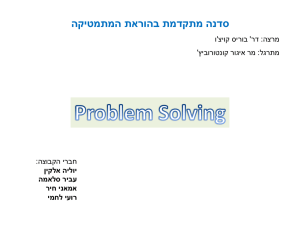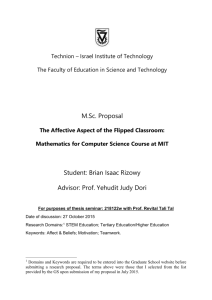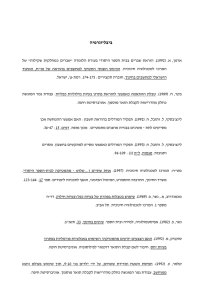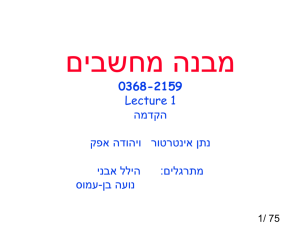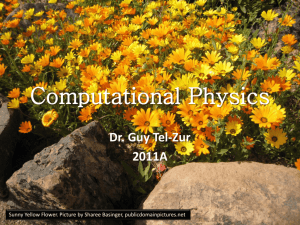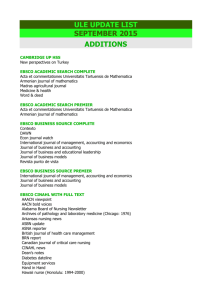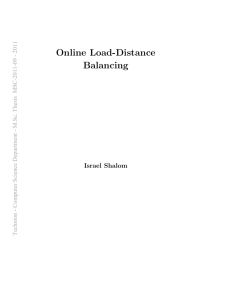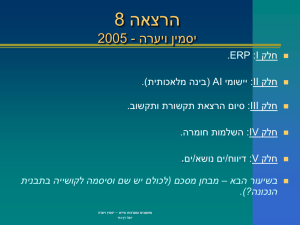רשימה ביבליוגרפית
advertisement
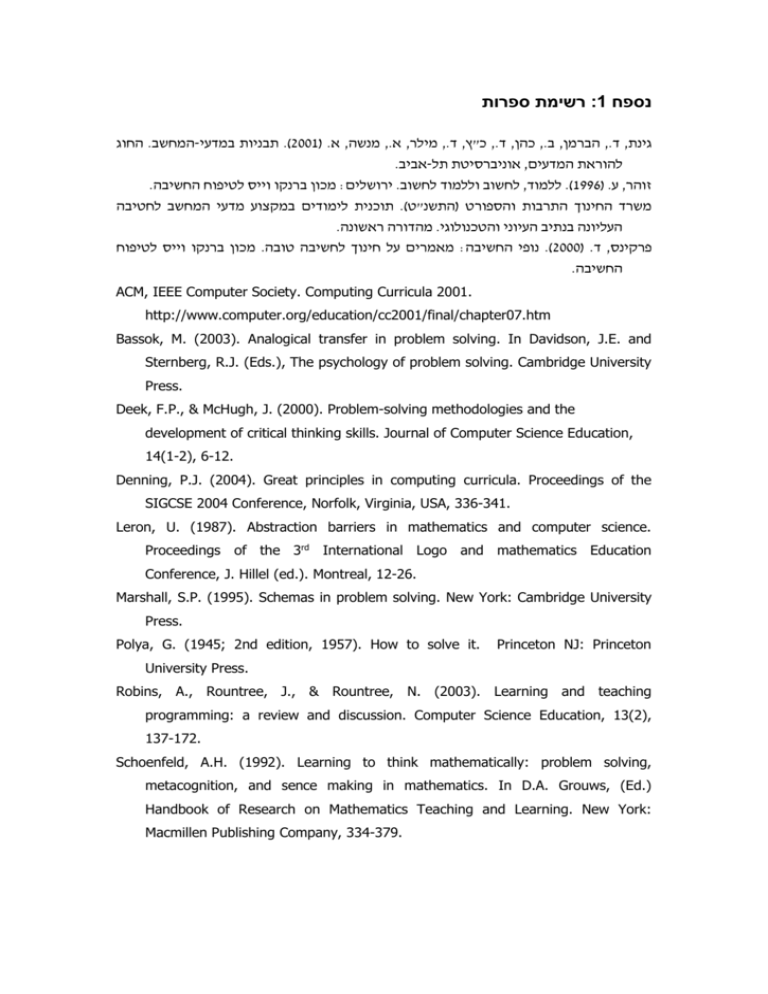
רשימת ספרות:1 נספח החוג.המחשב- תבניות במדעי.)2001( . א, מנשה,. א, מילר,. ד, כ"ץ,. ד, כהן,. ב, הברמן,. ד,גינת .אביב- אוניברסיטת תל,להוראת המדעים . מכון ברנקו וייס לטיפוח החשיבה: ירושלים. לחשוב וללמוד לחשוב, ללמוד.)1996( . ע,זוהר תוכנית לימודים במקצוע מדעי המחשב לחטיבה.)משרד החינוך התרבות והספורט (התשנ"ט . מהדורה ראשונה.העליונה בנתיב העיוני והטכנולוגי מכון ברנקו וייס לטיפוח. מאמרים על חינוך לחשיבה טובה: נופי החשיבה.)2000( . ד,פרקינס .החשיבה ACM, IEEE Computer Society. Computing Curricula 2001. http://www.computer.org/education/cc2001/final/chapter07.htm Bassok, M. (2003). Analogical transfer in problem solving. In Davidson, J.E. and Sternberg, R.J. (Eds.), The psychology of problem solving. Cambridge University Press. Deek, F.P., & McHugh, J. (2000). Problem-solving methodologies and the development of critical thinking skills. Journal of Computer Science Education, 14(1-2), 6-12. Denning, P.J. (2004). Great principles in computing curricula. Proceedings of the SIGCSE 2004 Conference, Norfolk, Virginia, USA, 336-341. Leron, U. (1987). Abstraction barriers in mathematics and computer science. Proceedings of the 3rd International Logo and mathematics Education Conference, J. Hillel (ed.). Montreal, 12-26. Marshall, S.P. (1995). Schemas in problem solving. New York: Cambridge University Press. Polya, G. (1945; 2nd edition, 1957). How to solve it. Princeton NJ: Princeton University Press. Robins, A., Rountree, J., & Rountree, N. (2003). Learning and teaching programming: a review and discussion. Computer Science Education, 13(2), 137-172. Schoenfeld, A.H. (1992). Learning to think mathematically: problem solving, metacognition, and sence making in mathematics. In D.A. Grouws, (Ed.) Handbook of Research on Mathematics Teaching and Learning. New York: Macmillen Publishing Company, 334-379. Spohrer, J.C., & Soloway, E. (1989). Novice mistakes: are the folk wisdoms correct? In E. Soloway & J.C. Spohrer (Eds.), Studying the novice programmer, 410-416. Hillsdale, N.J: Laurence Erlbaum. Sweller, J. (1988). Cognitive load during problem solving: effects on learning. Cognitive Science, 12, 257-285. Wing, J.M. (2006). Computational thinking. Communications of the ACM, 49(3), 3335.
